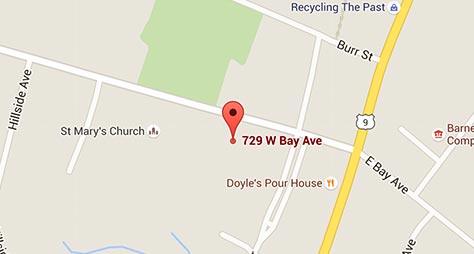In January a 19-year-old man was riding his motorcycle when he ran into an 8-point male deer. The impact required him to have eight blood transfusions and constant medical care for the wounds he received. Despite his injuries, he was happy that he was wearing a helmet at the time according to KENS 5 News.
Many states, including New Jersey, require motorcyclists to wear helmets for their own protection. When a rider is tossed from their bike during a collision, they often land on their head and, without a helmet to absorb some of the impact, they have little chance of surviving the injuries sustained.
Motorcycle deaths and injuries rising
The Centers for Disease Control and Prevention has categorized motorcycle deaths and injuries as a public health concern. Data between 2001 and 2008 shows a 55 percent increase in the numbers of motorcyclists killed in an accident within the U.S. Furthermore, non-fatal injuries have also increased; head and neck injuries account for 22 percent of all motorcycle accidents.
In New Jersey, the Office of the Attorney General also reports an increase, stating that 377 cyclists have died between the years 2003-2007. In addition, each year cyclists receive an average of 2,000 injuries and 2,500 motorcycle accidents occur. One way to avoid injury, the state says, is to wear a helmet.
Helmet laws
In an effort to decrease the number of fatalities and serious head injuries to motorcyclists, helmet laws have been passed in all but three states in the U.S. These laws vary per state. For instance, one state may require helmets for only certain classifications of motorcycles such as street cycles and mopeds. Another state may require a helmet for all types of bikes but be applicable to only bike riders under the age of 18.
New Jersey law requires that all riders on any kind of motorcycle or low-powered cycle must wear a helmet. According to the state's law, the helmet must have the approval of the U.S. Department of Transportation and fit the person who is wearing it. Biker helmets must also be designed with side reflection capability to reflect light and be fastened with a chin or neck strap.
Helmets increase motorcycle accident survival
While not all fatal injuries sustained in a motorcycle accident are head-related, studies show that helmets can reduce the risk of death. The National Highway Traffic Safety Administration states that wearing a helmet was found to increase survival for motorcycle accident victims by 37 percent.
This is true for both those operating the motorcycle and for passengers. By wearing a helmet and other protective gear, bikers can protect themselves from serious injury, avoiding costly medical bills, loss of income, and weeks or months of painful recovery.
If you have been injured in a motorcycle accident because of another's negligence, contact an experienced personal injury attorney to discuss your case and review your options for legal recovery.



